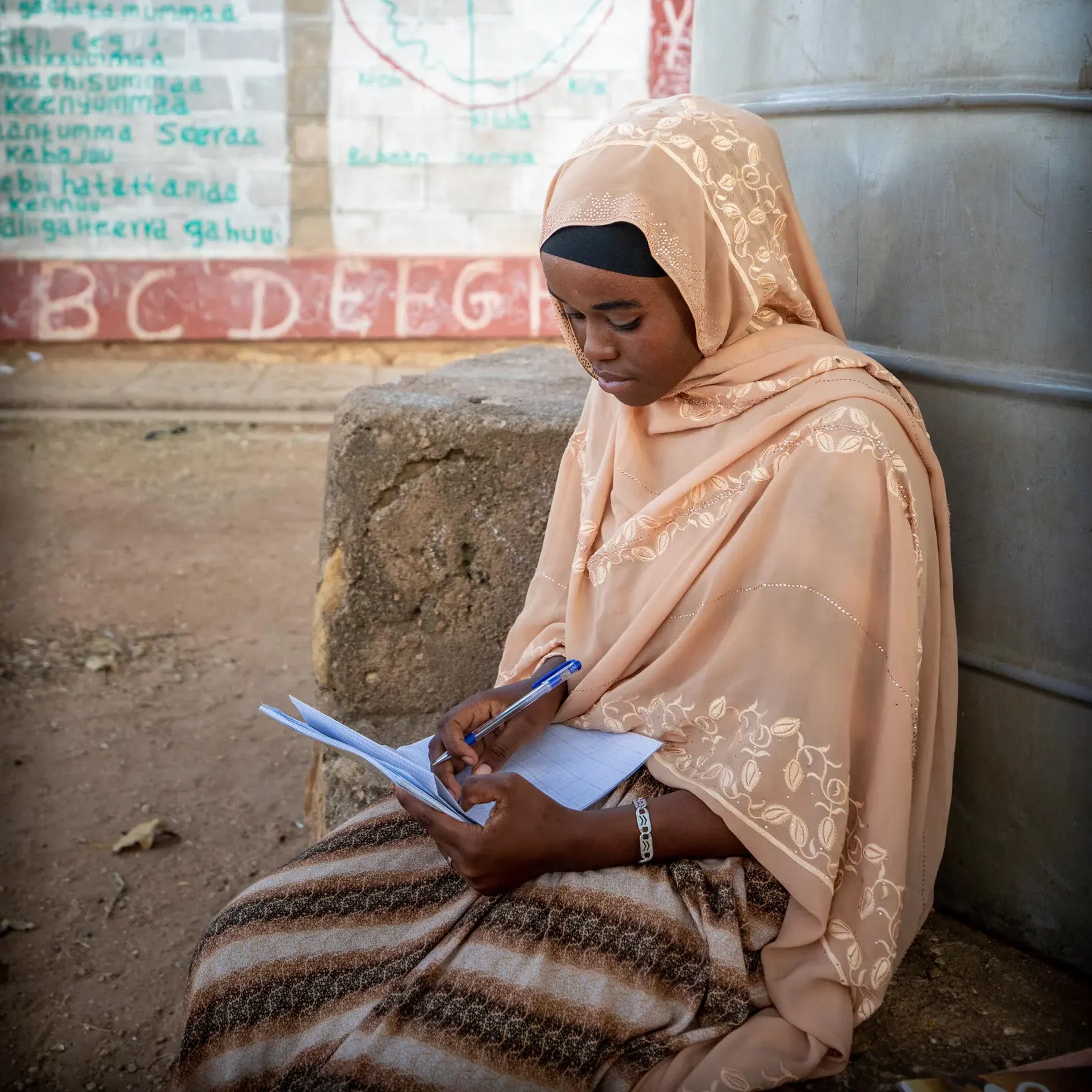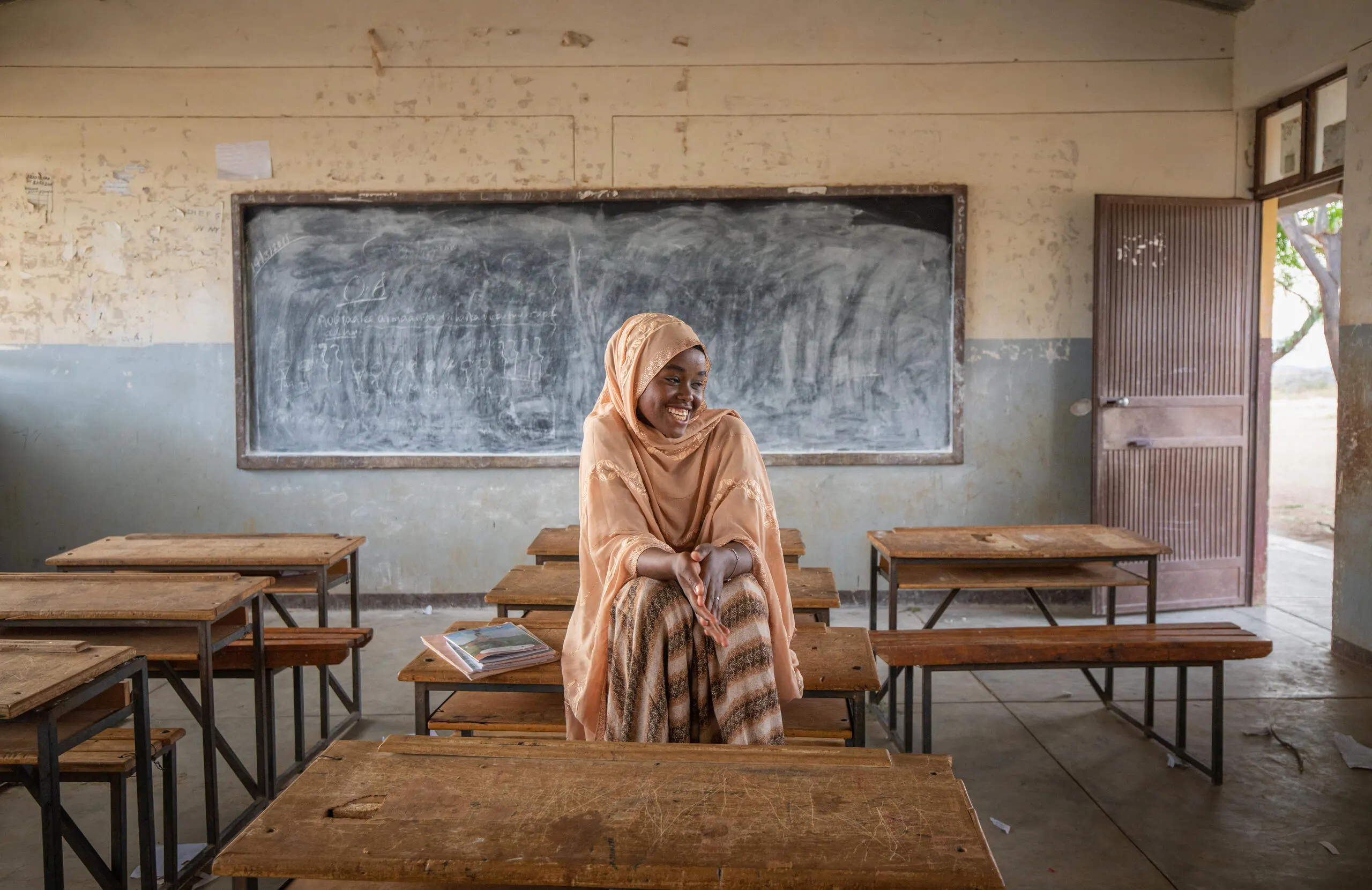Ethiopia has some of the highest rates of child, early, and forced marriage (CEFM), with 4 in 10 girls married before 18.
Child marriage and female genital mutilation (FGM) had been on the decline, but complex humanitarian crises – conflicts, droughts and displacement – have seen a rise in gender-based violence again.
Zala* (pictured), now 16, lives in the Oromia Region in Eastern Ethiopia and has big plans for her future. “I want to finish school and become a doctor. I like to help people and I want to treat patients, so they become healthy again.”
But for some time, Zala didn’t dare to dream of going back to school. At just 12-years-old, Zala was forced to drop out of school to travel to Ethiopia’s Somali region.
What she did not know was that she was to get married there.

“At that age, you don’t understand what love or marriage is,” says Zala. “When my future husband said he wanted to marry me, I felt very insecure. I didn’t want to marry him. But my father had given his will. I didn’t have any other options.”
Zala stayed for four months with her husband and his family. Throughout her marriage she was in pain and discomfort. Eventually, her mother convinced her to come home with her.
In addition to the impact on mental and physical pain of being married at an early age, communities often reject divorced girls so they can’t return to school or social life in their village.
“I faced a lot of stigma after returning to my community, so I decided to move to Djibouti to find a job and earn money,” says Zala, recalling this painful time.
Empowering children and young people
To tackle the numbers of child marriage and its implications on girls in the Oromia Region, ‘Joining Forces for Africa’ (JOFA) introduced community and school-based programmes in the districts of Babile and Chinaksen.
SOS Children’s Villages, Ethiopia – an implementing partner of these projects – provides support to increase child participation in prevention methods. Now children and young people take the lead to eliminate harmful practices, including early child marriage.
Through children’s clubs, partnerships with local governments, and community-based child protection groups, the project facilitates communications with those in child protection to identify and resolve child marriage issues.
In the first year after implementing the project in the Babile district, the number of child marriage cases decreased significantly, and as a consequence, the number of girls enrolling in school has increased.
The outcomes of the children’s platforms has also had an immediate impact on communities, as religious leaders are now not giving their blessing to marriages involving children or without full and explicit consent from women.
A role model for girls
And for Zala, she’s become a role model in her community.
When she returned from Djibouti, Zala didn’t feel able to go back to school. “I was afraid of my peers and the community. People shame girls like me who go back to school at my age.” says Zala.
But, after receiving intensive counselling from SOS Children’s Villages, Zala returned to education.
“In the beginning, I felt uncomfortable. I was much older than the others in my class. But thanks to the support of SOS Children’s Villages and JOFA, I felt empowered and decided to tackle those stigmas around girls who were married. I want to learn, no matter the grade I’m in, and not lose out due to social stigma.” says a now confident Zala.
“There are a lot of other girls affected by child marriage and many think it’s normal to get married at an early age because it’s common in my community.” says Zala.
“I want to show them it’s possible to overcome stigmas and pursue education.”

Zala now advocates to end child marriage and helps raise awareness of the negative implications of child marriage on girls’ health and development.
“We’re organising social groups and initiatives. I want girls to know that to live a happy and self-determined life, it’s important to be educated.
“Even if you dropped out of school, it’s never too late to return and catch up on your dreams.”
*Names changed to protect privacy

